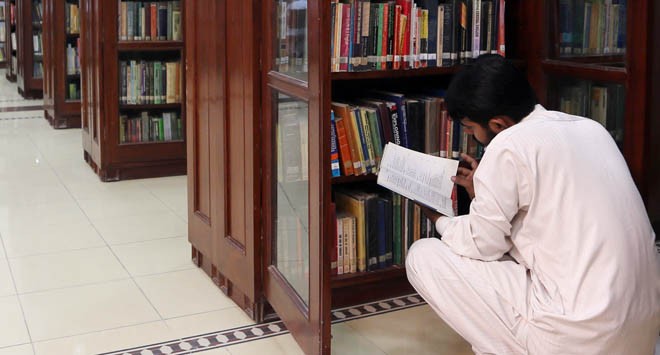
The notion that public libraries are no longer functional in Lahore remains redundant. The solution, if any, is not merely to refurbish what is lacking; it is to reinvent the concept of a library entirely

With the emergence and the continuing growth of the digital age, what many have been complaining about is the negative impact on the reading culture in the city of Lahore which has long had some of the country’s best known public libraries. What they do not realise is that a reading culture never truly existed in the city.
Notably, today, there are no active libraries in the city which does not help the cause. I recently had a chance to visit Model Town Public Library and Defence Public Library, and both were in comparable conditions.
Numerous shelves displayed books according to a specific category; specific bookcases stacked as ‘New Arrivals’ showing there was an update some time ago.
However, though the shelves were supposed to place books categorically, several of them had books from entirely different genres as well -- probably courtesy of the public that visits the libraries and do not place the books where they belong.
Also, the books were mostly outdated and did not include the latest or the best publishers of the respective category. Layers of dust on the books only went to show that even if the collection was regularly updated, they would be left unused. There were barely four people at the MTPL and only six at the DPL.
When I talked to the receptionist at the MTPL, he was very positive about the library and said that people frequently visited outside of the month of Ramzan and are also particular about borrowing and returning books.
He also said that the books were updated on an annual basis, following budget allocations.
The receptionist at the DPL, on the other hand, was more negative about the library and complained about the lack of visitors as well as the lack of additions to the collection at the library.
The primary reason that aggravates the situation is the influence of the internet and how it is the single most important factor in determining the future of libraries, anywhere in the world. The internet feeds our fast-paced lives and the need for condensed, to-the-point information increases.
Similarly, our fast-paced lives determine how the internet informs us. Libraries have been reduced to mainly scholarly, academic research workshops.
While talking to a bunch of people who are fond readers and seemed to be aware of the minimal access to reading material, I learnt that their replies were almost similar. What they all pointed out was as to how there was no need for a centre that allows the borrowing of books. It needs to be a place resembling a lounge -- a hybrid of a few things.
Such a centre would not only have a wide range of books of various disciplines but would also involve having cozy sofas and throw-cushions to create a homely environment. A small coffee shop in one corner so as to grab a bite or drink in between studying/reading would be a major plus, too.
Moreover, and most importantly, the visitors felt it was essential to have desktops/laptops that they could use for both academic and recreational purposes, which would incorporate a system of gaining access to online material such as e-books, e-magazines and historical/archived e-documents and artifacts.
The complaint that libraries are no longer functional in Lahore remains redundant. The solution, if any, is not merely to fulfill what is lacking; it is to reinvent and revitalise the concept of a library entirely.